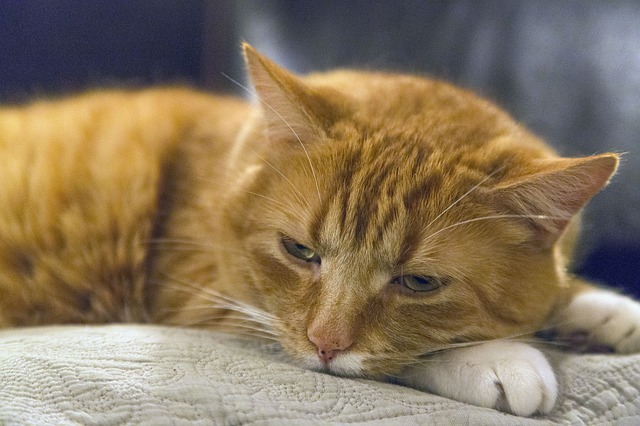We cat parents will do anything to make sure our kitties are healthy and happy. We also know that they tend to be predisposed to urinary issues. But sometimes, it’s hard to tell when there’s a problem – until it’s too late.
We at iHeartCats asked Dr. Michel Selmer, DVM, CTCVMP, to tell us about some signs of potential urinary issues in cats. Also known as “The Caring Vet,” Dr. Selmer is a Certified Veterinary Food Therapist (CVFT) who uses principles from Traditional Chinese Veterinary Medicine (TCVM) to treat his patients.

In the words of Dr. Selmer:
When your dog is sick, he’ll typically make it obvious that something is wrong, but your cat?
Cats — who are still genetically wild animals — are different. They’re still hard-wired to hide their problems, illnesses and injuries. This can make it tough for cat owners to figure out when their beloved feline is having urinary issues and/or is not feeling well.
If your cat shows any changes in his or her behavior, it may be an indication of pain or that your cat is not feeling well. Here are some more subtle, examples to look out for:
- Laying in a different space
- Appetite changes, either decreased or increased
- Increased drinking and/or urinating behavior
- Changes in the litter box, inappropriate urination…(urinating outside the litter box) or frequent trips to the litter box
- Straining to urinate or painful urination
- Presence of blood or mucus in the urine; or
- Change in odor or color of the urine
Cats are creatures of habit, if they start doing something different it is an indication that you should make an appointment to see your veterinarian.

We want to thank Dr. Selmer for sharing his knowledge with us. If you want to learn more about taking a holistic approach to your pet’s healthcare, check out his book The Best of Both Worlds: An Advanced Guide to Integrative Veterinary Care for Happier, Healthier Pups.
You can also check out his website and follow him on Facebook.
